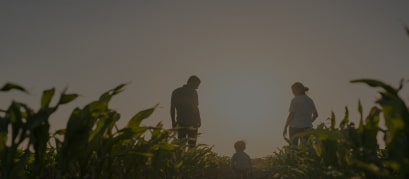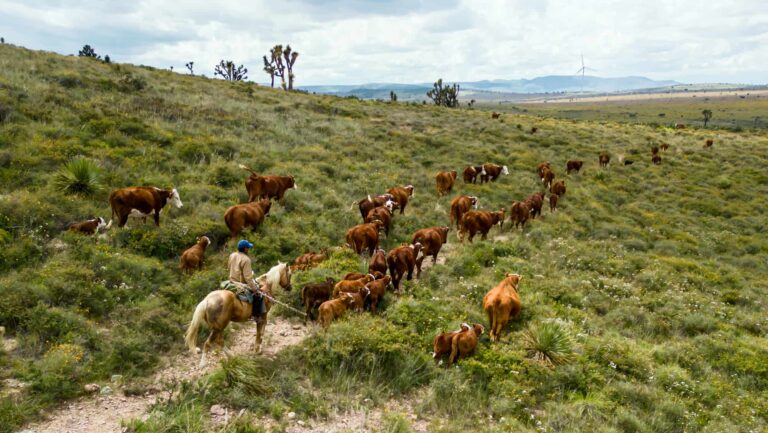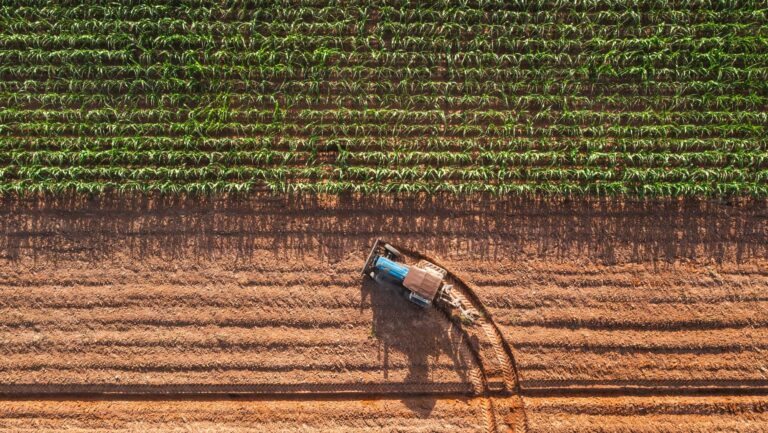Avoiding Financial Hardship with Flexible Transitional Land Loan Programs
When faced with unforeseen financial challenges, transitional lending can provide a solution.
American farmers and ranchers face immense challenges, many of which are out of their control. They prove their resilience and dedication daily. Farming requires quick responsiveness, adaptation, and perseverance. Whether recovering from a natural disaster or adjusting to changing commodity prices, farmers must keep their operation running amid unending changes and challenges.
“You put up your life’s savings in literally betting the farm to make a crop every year with potential for natural disasters and other things that are completely outside of your control that you have to factor into your business model.”
– Lanair Worsham Sr., Multigenerational Georgia Farmer
While there are many variables that can affect a farm operation’s success, some important ones include:
- Weather events;
- Pests; and
- Rising input costs and variable commodity pricing.
Keep reading to understand how these variables impact farms across the nation and learn how transitional lending can provide a solution.
Weather Events
Weather is one of the driving forces behind the volatility of the agriculture industry. To attest to this growing concern, in the past two decades, global disasters increased by more than 43 percent in comparison to the two prior decades. Some of these hazardous weather events include hurricanes, floods, fires, droughts, earthquakes, and tornadoes.
Weather can destroy both crops and farm infrastructure, making it one of the most destructive variables to operational success. In fact, the USDA estimates that extreme weather causes 90 percent of crop losses. Some examples of the impacts of severe weather on farms include:
- Floods delay planting and increase the potential for crop disease;
- Hailstorms bruise fruits and vegetables or decimate an entire crop;
- In 2020, the Midwest derecho flattened almost 38 million acres of farmland, killing corn plants; and
- Over four million acres of land were burned in California wildfires in 2020.
These devastating weather events lead to significant financial losses for the farmers who are impacted. For instance, North Carolina recorded over $1.1 billion in damages to crops and livestock in the aftermath of Hurricane Florence.
The Worsham Family Farm’s Devastating Loss and Resilience
In 2018, a family farm in North Carolina faced Hurricane Michael. The Worsham family farm experienced millions of dollars in crop damage to their corn, peanut, and pecan operation. In fact, the turbulent storm completely flattened 100 acres of corn.
Not only did they suffer from substantial financial losses, but the destruction to their land and crops also took an emotional toll. Their family had been farming this land for generations, and they had worked so hard to sustain it. Despite these challenges, they demonstrated unwavering dedication to the longevity and success of their cherished farm. To hear their inspiring story of hardship and perseverance, we invite you to watch their documentary.
“You put up your life savings every year. You put up all of your land and everything to run your business for that year. You have a lot of things outside of your control. You have a hurricane, and there’s nothing you can do. You didn’t know that in January or February when you were planting your crop year.”
– Chris Worsham, Multigenerational Georgia Farmer
Pests and Crop Disease
Pests are another variable that can inhibit an operation’s success. One way that climate change impacts the health of crops is by increasing the prevalence of pests. Warm temperatures and wet climates allow many pests, weeds, and fungi to thrive. These pests have the potential to wreak havoc on crops. In fact, annual crop production losses from plant diseases and invasive insects are around $300 billion.
Rising Input Costs and Variable Commodity Pricing
In addition to these variables, an overarching challenge for today’s farmers is the rise in input costs. When expenses increase, profit margins decrease. Rising commodity prices are a driving force behind the increase in input costs. While this benefits many farmers, it also challenges others. For instance, a farmer who purchases commodities to sustain their operation will face rising input costs. On the other hand, the farmer growing the commodities will reap higher returns.
The Repercussions of Crop Loss
As a result of these uncontrollable circumstances, sometimes farmers face hard times and need funds in order to keep up on their loan payments to avoid foreclosure. Every farmer’s situation is unique, and a number of factors can lead to potential land loss.
Land loss leads to both emotional and financial repercussions. Losing land is an extremely stressful and emotional occurrence. Many farmers are emotionally invested in the land they worked so hard to maintain. Losing this land would be devastating. In many cases, the land has been part of a family for generations.
Jamie Johnson, a California Avocado rancher, is deeply connected to his land and carrying out his grandfather’s legacy.
“The land becomes like a family member. It’s crazy how attached you get.”
– Jamie Johnson, California Avocado Rancher
Jamie’s deeply engrained connection to his land resonates with a multitude of other American farmers. Losing their land would be like losing a part of themselves.
In addition to the stress of losing land, it also has financial repercussions. For instance, it is difficult to purchase land again after a foreclosure taints one’s credit history. With both emotional and financial repercussions, land loss contributes to significant hardship for farmers.
Transitional Lending: Providing the Funds You Need
From the surge in shipping container costs, to the increase in prices of commodities used to feed cattle, farmers are facing challenges that are outside of their control. As a result, they must strategically tailor what they can control: their response.
Transitional land loans provide a solution to farmers facing potential land loss. Transitional loans, such as land bridge loans and interest-only land loans, grant you access to capital quickly in order to provide the resources necessary to meet debt obligations, keep your cherished land, and build on the resilience of your operation.
After or during the term of the loan, borrowers can often transition from the transitional loan into a long-term conventional loan with lower interest rates. Transitional loans are a great way to gain quick access to capital in challenging times. However, we understand that you need a long-term solution to help your farm recover and blossom into a thriving operation. Our team takes a holistic look at your operation in order to customize your loan structure. This, in turn, helps you move towards a long-term loan structure.
In essence, transitional land loans are a strong solution to quickly provide liquidity to avoid foreclosure of your beloved land that you work so hard to sustain.
Documents Needed for Transitional Loan Applications
When applying for a transitional loan, there are various documents AgAmerica needs to examine in order to develop the best solution for your unique operation. This information helps us develop a comprehensive understanding of your operation’s unique strengths and challenges so we can create the best loan structure for you. Some of these documents include:
- Federal tax returns: These help us better understand your operation’s financials so we can create the best loan structure with minimal risk.
- Identification of proposed collateral: This helps us assess the value of your land when building your loan package.
- Balance sheets: This helps us analyze your business spending.
- Income statements: This shows us your income history, what you spend money on, and your ability to meet your loan obligations in the short term.
- Asset and debt statements: This allows us to validate your current financial standing.
- Debt schedule: This allows us to develop an understanding of your current debts so we can develop a loan structure to help you make payments on time and in full.
Overcome Financial Hardship with a Transitional Land Loan
American farmers and ranchers continuously demonstrate their profound dedication and resilience as they overcome the many obstacles thrown their way. From hurricanes to droughts, natural disasters and other events threaten farmers’ ability to keep their cherished land. We understand the importance of your land, and our goal is to help you keep it in your family for generations to come. AgAmerica offers transitional lending products designed to meet you where you’re at. These loans are short-term with interest-only payments to help you get back on your feet.
Complete our short Accelerate Land Loan application to get started on your journey to operational resiliency today.






